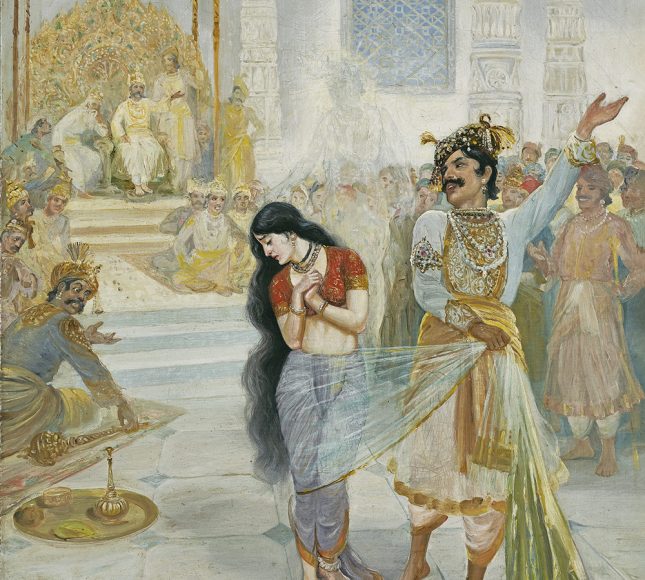DUHSASANA In the court of Duhsasana, while Draupadi\’s garments were being taken off, she was saved (by Krishna). (Mali Gaura Namdev, p. 988) Duhsasana was one of the hundred sons of Dhritarashtra. He was the younger brother of Duryodhana. When the Pandavas lost their wife Draupadi in gambling match, she was dragged as slave by Duhsasana by her hair and ill-treated her. On seeing the plight of Draupadi, Bhima swore that he would drink the blood of Duhsasana. See : Durjodhana (Duryodhana) and Daropadi (Draupadi)
References :
1. Kohli, Surindar Singh (ed), Dictionary of Mythological References in Guru Granth Sahib, 1993
Dushasana (also spelled Duhsasana) is a significant character in Hindu mythology, particularly in the Indian epic Mahabharata. He was one of the hundred Kaurava brothers, born to King Dhritarashtra and Queen Gandhari, and was the younger brother of Duryodhana, the eldest Kaurava.
Dushasana is infamous for his role in the humiliation of Draupadi, the wife of the Pandavas. During the dice game orchestrated by Duryodhana, Dushasana was the one who attempted to disrobe Draupadi in the royal court. However, Draupadi’s prayers to Lord Krishna resulted in a miracle where her sari became infinitely long, protecting her dignity. This act of Dushasana greatly angered the Pandavas and became one of the pivotal reasons for the Kurukshetra War.
Dushasana’s end comes during the war when Bhima, the second Pandava, kills him in battle. Bhima fulfills his vow to avenge Draupadi by drinking Dushasana’s blood—a dramatic moment that symbolizes justice and retribution.
Dushasana’s actions and their consequences serve as a reminder of the importance of dharma (righteousness) in Hindu philosophy.



